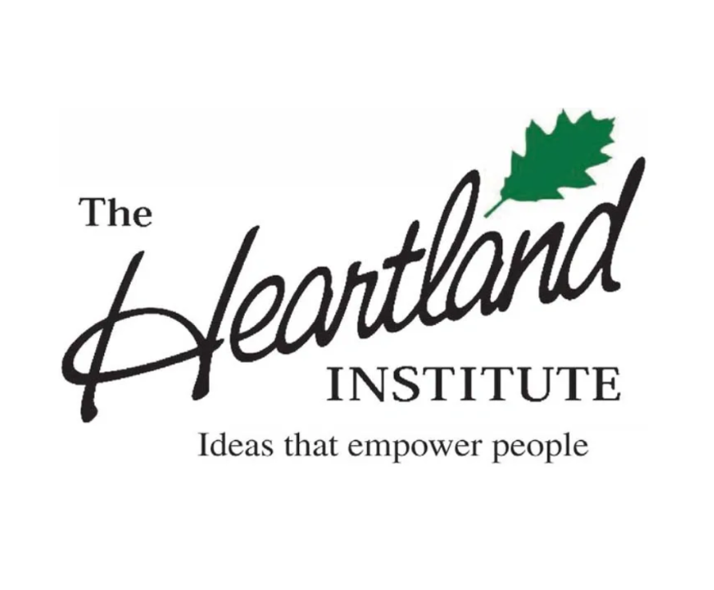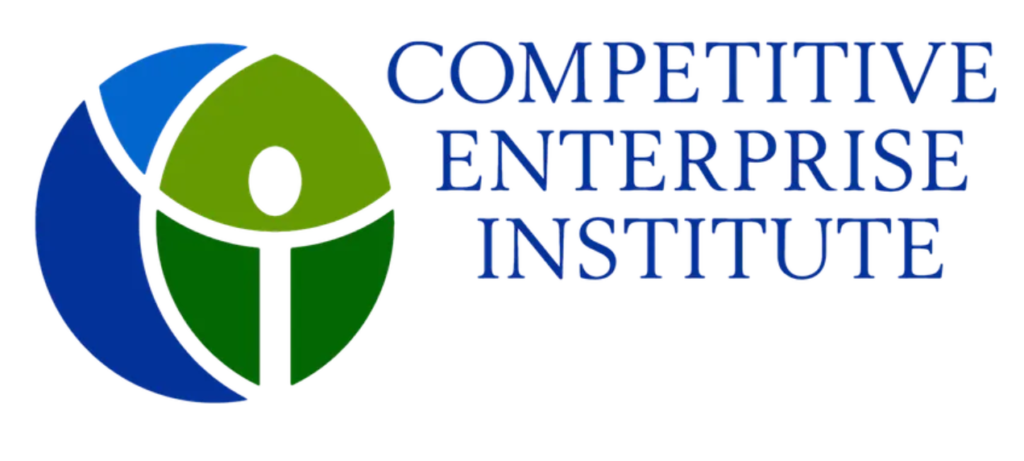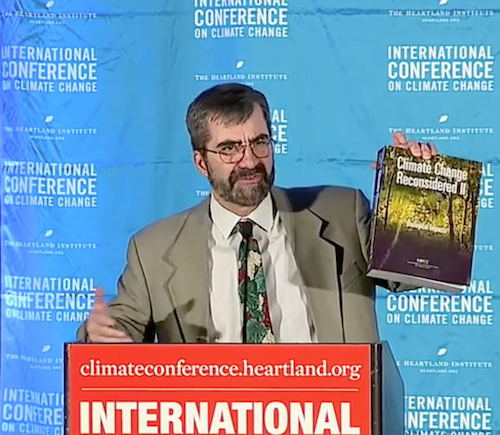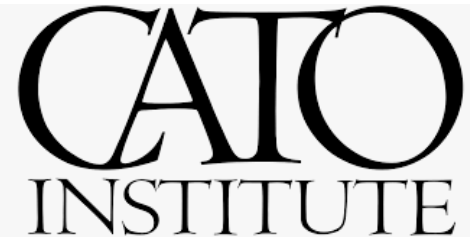Lexington Institute
Background
The Lexington Institute is a 501(c)(3) organization based in Arlington, Virginia, focused on national security education reform, tax reform, immigration and federal policy concerning science and technology. The Lexington Institute was founded in 1998 by Mac Carey.1“Merrick ‘Mac’ Carey,” Lexington Institute. Archived February 29, 2016. Archive.is URL: https://archive.is/MHqdw The Institute has received funding from ExxonMobil as well as numerous conservative foundations including the Smith Richardson Foundation, Jaquelin Hume Foundation and Friedman Foundation for Educational Choice.2“Lexington Institute,” Conservative Transparency. Accessed February 27, 2016.
The Lexington Institute says its mission includes “shaping the public debate” and “limiting the role of the federal government”:3“Mission,” Lexington Institute. Archived February 28, 2016. Archive.is URL: https://archive.is/9cLAN
It is the goal of the Lexington Institute to inform, educate, and shape the public debate of national priorities in those areas that are of surpassing importance to the future success of democracy, such as national security, education reform, tax reform, immigration and federal policy concerning science and technology. By promoting America’s ability to project power around the globe we not only defend the homeland of democracy, but also sustain the international stability in which other free-market democracies can thrive.
The Lexington Institute believes in limiting the role of the federal government to those functions explicitly stated or implicitly defined by the Constitution. The Institute therefore actively opposes the unnecessary intrusion of the federal government into the commerce and culture of the nation, and strives to find nongovernmental, market-based solutions to public-policy challenges. We believe a dynamic private sector is the greatest engine for social progress and economic prosperity.
While the Lexington Institute lists its staff as under 10 individuals, it has frequently been quoted in national media. The Institute’s COO Loren B. Thompson is a regular contributor to Forbes, primarily on the topic of national security. In terms of visibility, a 2009 study (PDF) cited the Lexington Institute as number two in America relative to its budget size.4“Cost Effectiveness of the Most Widely Cited Think Tanks” (PDF), Center for Economic and Policy Research, September, 2009. Archived .pdf on file at DeSmog.
The Institute has been described as the “defense industry’s pay-to-play ad agency,” having received funding from military contractors and having written numerous favourable reports about weapons programs.5Ken Silverstein. “Mad men: Introducing the defense industry’s pay-to-play ad agency,” Harpers Magazine (Sub. Required), April, 2010. Archive.is URL: https://archive.is/l1qNt
Stance on Climate Change
In a 2009 “issue brief,” Lexington Institute COO Loren B. Thompson wrote:
“That brings me to the subject of climate change, popularly known as “global warming.” Global warming is a real thing. It is caused by the accretion of chemicals in the atmosphere that trap solar energy, increasing surface temperatures. This process has been ebbing and flowing for hundreds of millions of years in a phenomenon scientists call the “carbon cycle.” Today the Earth is gradually warming, and if that trend were to continue indefinitely it could eventually become uninhabitable (as it was for much of its geological history).
“But despite the fact climate change is real, the response of the political system to its discovery has all the earmarks of a mania. The overheated rhetoric (no pun intended) surrounding its public discussion is not sustainable, and the draconian plans advanced to correct it are sure to have destructive consequences for the existing political and economic order.
“Because the carbon cycle unfolds much more slowly than political cycles, the changes proposed to deal with global warming will inevitably produce a political backlash. The backlash will erode the popular support for those who have advanced a global warming agenda, and discredit other ideas they espouse that are unrelated to climate change.
This problem can be mitigated by stressing positive solutions to global warming such as development of new technology. Unfortunately, more regulation seems to be the default setting of the modern Democratic Party, and it therefore will absorb the full burden of the popular backlash when voters realize what initiatives like “cap-and-trade” mean for their everyday lives.”6Loren B. Thompson. “Global Warming And The Politics Of Mania,” Lexington Institute, July 7, 2009. Archived February 28, 2016. Archive.is URL: https://archive.is/XqLoO
In a seperate 2009 “issue brief,” Thompson commented:
“To make matters worse, there is no consensus on what needs to be done about climate change.”7Loren B. Thompson. “Climate-Change Initiatives Must Be Affordable,” Lexington Institute, January 22, 2009. Archived March 2, 2016. Archive.is URL: https://archive.is/Zv5qc
In a 2007 “issue brief,” Thompson said:
“The scientific evidence really is strong. Eleven of the last twelve years are the hottest on record since observations began in the 1850s, and climatologists say that based on what they know about global weather patterns, there is over a 90% likelihood that the increase in temperatures is traceable to human activity. Most of the climate models suggest a continued, gradual rise in surface temperatures and ocean levels, but the public debate seems to be informed by an unspoken fear in some quarters that an invisible threshold will be breached leading to environmental collapse. […]
“There is only one way left for conservatives to save America from the regulatory morass that global warming remediation will entail. They must develop scientific evidence that the theory has been oversold. The way to do that is to vigorously support programs like NASA’s Earth Observing System and the Air Force-NOAA National Polar-Orbiting Operational Environmental Satellite System (NPOESS) — a next-generation weather satellite — that can close gaps in our understanding of the climate. There are enough of those gaps today so that truly draconian regulatory regimes can be justified on the basis of what might happen if warming continues. A more refined understanding of global climate patterns will probably undercut the alarmists, but until we orbit better instruments for observing the earth, the sky’s the limit in terms of what regulatory burdens might be imposed. Better science has become the last, best chance for preserving an unfettered economy.”8Loren B. Thompson. “Global Warming: A Last Chance for the Skeptics,” Lexington Institute, May 22, 2007. Archived February 28, 2016. Archive.is URL: https://archive.is/yP5Z9
Funding
Loren B. Thompson has stated, “I’m not going to work on a project unless somebody, somewhere, is willing to pay. This is a business. My bottom line is that if what I write and say is true, it doesn’t really matter what my motives are.”9Ken Silverstein. “Mad men: Introducing the defense industry’s pay-to-play ad agency,” Harpers Magazine (Sub. Required), April, 2010. Archive.is URL: https://archive.is/l1qNt
The following Lexington Institute funding details are based on data the Conservative Transparency project compiled from publicly available tax forms. Note that not all individual funding values have been verified by DeSmog.10“Lexington Institute,” Conservative Transparency. Accessed February 27, 2016.
View the attached spreadsheet for additional information on Lexington Institute funding by year (.xlsx).
| Donor | Total |
| Smith Richardson Foundation | $921,400 |
| Stuart Family Foundation | $815,000 |
| Jaquelin Hume Foundation | $756,000 |
| F.M. Kirby Foundation | $555,000 |
| Armstrong Foundation | $137,500 |
| Friedman Foundation For Educational Choice | $100,000 |
| Ruth & Lovett Peters Foundation | $95,000 |
| William H. Donner Foundation | $50,000 |
| Hickory Foundation | $15,000 |
| Exxon Mobil | $10,000 |
| Schwab Charitable Fund | $5,000 |
| Grand Total | $3,459,900 |
990 Tax Forms
Key People
As of February, 2016, the following people were listed on the Lexington Institute’s website:11“Biographical Information,” Lexington Institute. Archived February 28, 2016. Archive.is URL: https://archive.is/afqBu
- James Andrew Courter — Chairman
- Merrick “Mac” Carey — Chief Executive Officer
- Loren B. Thompson — Chief Operating Officer
- Don Soifer — Executive Vice President
- Daniel Goure — Vice President
- Monica Kern — Vice President
- Constance Baroudos — Vice President
Past People
According to an early profile on Bohen Cohen, he joined the Lexington Institute as a senior fellow in 1999.12“The Fear Profiteers: Do ‘Socially Responsible’ Businesses Sow Health Scares to Reap Monetary Rewards?” (PDF), National Center for Public Policy/Junkscience.com. Retrieved from the Hudson Institute website. Archived March 3, 2016. Archived .pdf on file at DeSmog.) His Lexington Institute profile still existed online as late as April, 2003.13“Bonner R. Cohen, Ph.D.: Senior Fellow,” Lexington Institute. Archived April 18, 2003. Archived .pdf on file at DeSmog. Archive.is URL: https://archive.is/0yKqT
Actions
July 2014
The Lexington Institute published a study titled “Keeping the Lights on: How Electricity Policy Must Keep Pace with Technology” (PDF).14Don Soifer and Daniel Gouré. “Keeping the Lights on: How Electricity Policy Must Keep Pace with Technology” (PDF), Lexington Institute, July, 2014. Archived .pdf on file at DeSmog.
The study briefly touches on renewable energy sources:
“Another factor driving industry change is the growing majority of states implementing aggressive mandates requiring fast-approaching targets for increasing the share of their electricity produced from renewable sources. These plans, while popular among environmentalists, sharply impact the ability of utilities to recover investment costs under the old model.”
2013
A 2013 Lexington Institute report, “Ensuring the Resilience of the U.S. Electric Grid” (PDF) outlines strategies to minimize the impact of disruptions to the power grid.
The report notes that the age of many essential components are part of a “great risk” to the electrical power grid and highlights a statement by the American Society of Civil Engineers which includes the note that “73% of all coal-fired capacity is 30 years or older.”15J. Michael Barrett, Jeff Harner and John Thorne. “Ensuring the Resilience of the U.S. Electrical Grid” (PDF), the Lexington Institute, January, 2013. Archived .pdf on file at DeSmog.
December, 2000
The Washington Times reports that the Lexingon Institute’s Bonner Cohen was a member of a “global warming panel” on the Kyoto Protocol in the Cannon House Office Building.16“Inside the Beltway,” The Washington Times, December 8, 2000. Archived March 4, 2016. Archive.is URL: https://archive.is/1BprA
Panel members mentioned included the following:
- Harlan Watson — majority staff director of the House Science subcommittee on energy and the environment
- Bonner R. Cohen — senior fellow of the Lexington Institute
- Craig Rucker — executive director of the Committee For a Constructive Tomorrow
- Myron Ebell — director of global warming policy at the Competitive Enterprise Institute
- Christopher C. Horner — counsel to the Cooler Heads Coalition.
C-SPAN describes the Cooler Heads Coalition (CHC) as hosting the event, and also named Joe Knollenberg, U.S. Representative for Michigan, as a member of the panel. Video below (Cohen appears at timestamp 7:20):17“Kyoto Protocol,” C-SPAN (Video), December 6, 2000.
August 31, 2000
Bonner Cohen, at the time a Lexington Institute Senior Fellow, authored a joint report report by the National Center for Public Policy Research (NCPPR) and Junkscience.com titled ”The Fear Profiteers: Do ‘Socially Responsible’ Businesses Sow Health Scares to Reap Monetary Rewards?” (PDF).18“The Fear Profiteers: Do ‘Socially Responsible’ Businesses Sow Health Scares to Reap Monetary Rewards?” (PDF), National Center for Public Policy/Junkscience.com. Retrieved from the Hudson Institute website. Archived March 3, 2016. Archived .pdf on file at DeSmog.)
According to the report’s press release, “Authored by a distinguished group of experts, ‘Fear Profiteers: Do Socially Responsible Businesses Sow Health Scares to Reap Monetary Rewards?’ describes a number of major health scares of the last decade and links them to Fenton Communications – a slick, for-profit public relations business that, along with its clients, makes money by alarming the public:”19(Press Release). “Watchdog group releases ‘Fear Profiteers’;Report exposes health scare industry,” NoMoreScares.com, August 31, 2000. Archived October 17, 2000. Archived .pdf on file at DeSmog. Archive.is URL: https://archive.is/o9pPy
The report was part of the “No More Scares” campaign, which Sourcewatch describes as “a front group launched in August 2000 by a number of leading figures in the anti-environmental ‘sound science’ movement, aiming to smear environmental and health activists as behind-the-scenes conspirators who ‘sow health scares to reap monetary rewards.’”20NoMoreScares.com Homepage. Archived October 18, 2000. Archived .pdf on file at DeSmog. Archive.is URL: https://archive.is/OMKeU 21“No More Scares Campaign,” SourceWatch. Accessed March 3, 2016. Archive.is URL: https://archive.is/qb4Qf
The report’s authors/editors were listed as follows:22(Press Release). “Watchdog group releases ‘Fear Profiteers’;Report exposes health scare industry,” NoMoreScares.com, August 31, 2000. Archived October 17, 2000. Archived .pdf on file at DeSmog. Archive.is URL: https://archive.is/o9pPy
- Dr. Bonner R. Cohen, Ph.D — The Lexington Institute.
- Michael Fumento
- Michael Gough — a fellow of the Society for Risk Analysis
- Steven J. Milloy — publisher of Junkscience.com and an adjunct scholar at the Cato Institute.
- Dr. Henry I. Miller — Senior Research Fellow at the Hoover Institution.
- Kenneth Smith — a deputy editor of the editorial page of The Washington Times.
- Elizabeth M. Whelan, Sc.D., M.P.— President and a founder of the American Council on Science and Health.
Related Organizations
EnergyTrends.org
The Lexington Institute created EnergyTrends.org to “ provide useful information about the energy we use and produce, in a format that lets readers compare and track their own states’ vital energy patterns.”23“About EnergyTrends.org,” EnergyTrends.org. Archived February 28, 2016. Archive.is URL: https://archive.is/Ytqpv
Alexis de Tocqueville Institution Connection
Sourcewatch reports that a number of individuals involved with the Lexington Institute have also been active at the Alexis de Tocqueville Institution (AdTI).24“Lexington Institute,” Sourcewatch profile. Accessed February 28, 2016. Archive.is URL: https://archive.is/zSK0Q
| Name | Function at AdTI |
| James Andrew Courter | Former chairman, ”Committee for the Common Defense” and consultant at AdTI (1998) |
| Merrick Carey | Former President AdTI |
| Dr. Loren B. Thompson | Senior Fellow |
| Philip Peters | Staff Member (1998) |
| Clifford Sobel | Director (1996) |
| Paul F. Steidler | Director of the AdTI’s Education Reform Project |
| Robert Severns | Member of the first board in 1989 |
Lexington Institute Contact & Location
As of May, 2016, the Lexington Institute listed the following contact information on their website:25Homepage, Lexington Institute. Archived May 18, 2016. Archive.is URL: https://archive.is/C0J2V
1600 Wilson Boulevard – Suite 203
Arlington, VA 22209
Phone: 703.522.5828
Fax: 703.522.5837
Social Media
- @LexNextDC on Twitter
- @lexnextdc on Facebook
- Lexington Institute on LinkedIn
- Lexington Institute on YouTube
- Lexington Institute on Flipboard
Other Resources
- “Lexington Institute,” Wikipedia.
- “Lexington Institute,” Right Web profile.
Resources
- 1“Merrick ‘Mac’ Carey,” Lexington Institute. Archived February 29, 2016. Archive.is URL: https://archive.is/MHqdw
- 2“Lexington Institute,” Conservative Transparency. Accessed February 27, 2016.
- 3“Mission,” Lexington Institute. Archived February 28, 2016. Archive.is URL: https://archive.is/9cLAN
- 4“Cost Effectiveness of the Most Widely Cited Think Tanks” (PDF), Center for Economic and Policy Research, September, 2009. Archived .pdf on file at DeSmog.
- 5Ken Silverstein. “Mad men: Introducing the defense industry’s pay-to-play ad agency,” Harpers Magazine (Sub. Required), April, 2010. Archive.is URL: https://archive.is/l1qNt
- 6Loren B. Thompson. “Global Warming And The Politics Of Mania,” Lexington Institute, July 7, 2009. Archived February 28, 2016. Archive.is URL: https://archive.is/XqLoO
- 7Loren B. Thompson. “Climate-Change Initiatives Must Be Affordable,” Lexington Institute, January 22, 2009. Archived March 2, 2016. Archive.is URL: https://archive.is/Zv5qc
- 8Loren B. Thompson. “Global Warming: A Last Chance for the Skeptics,” Lexington Institute, May 22, 2007. Archived February 28, 2016. Archive.is URL: https://archive.is/yP5Z9
- 9Ken Silverstein. “Mad men: Introducing the defense industry’s pay-to-play ad agency,” Harpers Magazine (Sub. Required), April, 2010. Archive.is URL: https://archive.is/l1qNt
- 10“Lexington Institute,” Conservative Transparency. Accessed February 27, 2016.
- 11“Biographical Information,” Lexington Institute. Archived February 28, 2016. Archive.is URL: https://archive.is/afqBu
- 12“The Fear Profiteers: Do ‘Socially Responsible’ Businesses Sow Health Scares to Reap Monetary Rewards?” (PDF), National Center for Public Policy/Junkscience.com. Retrieved from the Hudson Institute website. Archived March 3, 2016. Archived .pdf on file at DeSmog.)
- 13“Bonner R. Cohen, Ph.D.: Senior Fellow,” Lexington Institute. Archived April 18, 2003. Archived .pdf on file at DeSmog. Archive.is URL: https://archive.is/0yKqT
- 14Don Soifer and Daniel Gouré. “Keeping the Lights on: How Electricity Policy Must Keep Pace with Technology” (PDF), Lexington Institute, July, 2014. Archived .pdf on file at DeSmog.
- 15J. Michael Barrett, Jeff Harner and John Thorne. “Ensuring the Resilience of the U.S. Electrical Grid” (PDF), the Lexington Institute, January, 2013. Archived .pdf on file at DeSmog.
- 16“Inside the Beltway,” The Washington Times, December 8, 2000. Archived March 4, 2016. Archive.is URL: https://archive.is/1BprA
- 17“Kyoto Protocol,” C-SPAN (Video), December 6, 2000.
- 18“The Fear Profiteers: Do ‘Socially Responsible’ Businesses Sow Health Scares to Reap Monetary Rewards?” (PDF), National Center for Public Policy/Junkscience.com. Retrieved from the Hudson Institute website. Archived March 3, 2016. Archived .pdf on file at DeSmog.)
- 19(Press Release). “Watchdog group releases ‘Fear Profiteers’;Report exposes health scare industry,” NoMoreScares.com, August 31, 2000. Archived October 17, 2000. Archived .pdf on file at DeSmog. Archive.is URL: https://archive.is/o9pPy
- 20NoMoreScares.com Homepage. Archived October 18, 2000. Archived .pdf on file at DeSmog. Archive.is URL: https://archive.is/OMKeU
- 21“No More Scares Campaign,” SourceWatch. Accessed March 3, 2016. Archive.is URL: https://archive.is/qb4Qf
- 22(Press Release). “Watchdog group releases ‘Fear Profiteers’;Report exposes health scare industry,” NoMoreScares.com, August 31, 2000. Archived October 17, 2000. Archived .pdf on file at DeSmog. Archive.is URL: https://archive.is/o9pPy
- 23“About EnergyTrends.org,” EnergyTrends.org. Archived February 28, 2016. Archive.is URL: https://archive.is/Ytqpv
- 24“Lexington Institute,” Sourcewatch profile. Accessed February 28, 2016. Archive.is URL: https://archive.is/zSK0Q
- 25Homepage, Lexington Institute. Archived May 18, 2016. Archive.is URL: https://archive.is/C0J2V





